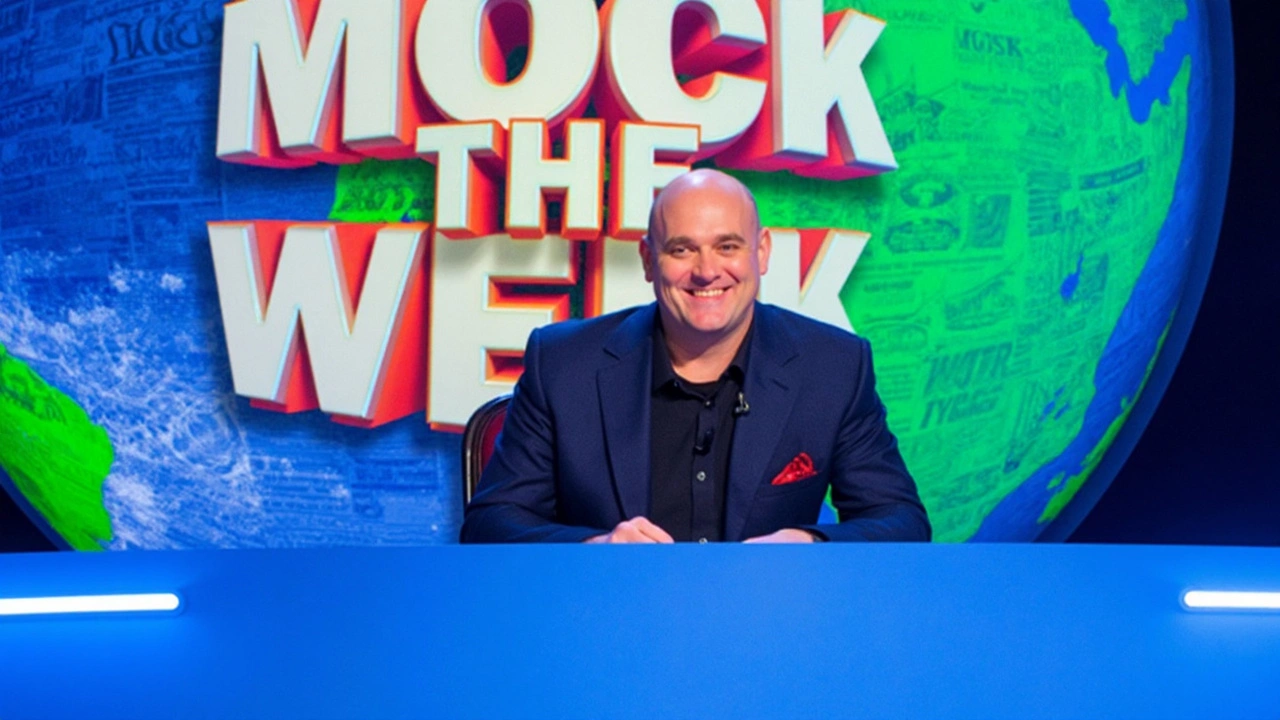How 'Mock the Week' Shook Up British Satire
When Mock the Week first hit screens back in 2005, nobody quite knew it would become such a fixture of British telly. You had Dara Ó Briain holding court over two teams, not just trying to get the most right answers, but to outwit, out-joke, and out-shock each other with stand-up routines and improv set squarely around the week's news. Right from the start, it wasn’t your standard panel show. Think quick fire, topical, and absolutely ruthless in its comedy instead of stuffy scoring systems. Most episodes looked more like a comedy club than a quiz.
For nearly two decades, the show drew comedians who soon became household names. Picture Hugh Dennis as the deadpan observer, Andy Parsons riffing on politics, and Frankie Boyle—well, he was notorious for pushing the boundaries further than most could imagine and definitely left his mark when he exited in Series 7. The cast rotated, but the mix of regulars and guest comics kept energy unpredictable. Russell Howard brought a cheeky enthusiasm before departing for his growing tour commitments, and then Chris Addison added another flavor to the mix. Early fans remember Rory Bremner in the opening acts, but after just two series, he stepped aside for Parsons to take over as a show mainstay.
Fresh Faces, Fast Jokes, and the Lasting Appeal
What really made Mock the Week tick? It wasn’t the points. Nobody remembers which team won any given episode. The real hook came from the stand-up routines jammed between parodies of political gaffes, football fiascos, and unpredictable current events. The producers shot a lot more than what made the final cut, leaving only the riotous best bits in half-hour packed episodes most Thursday nights. Editing was sharp, meaning viewers got non-stop punchlines and the show kept its pace even as formats and regulars changed.
The panel’s chemistry, and the show's reputation for chaos, drew comics eager to test their sharpest material. No topic was off the table—Brexit blunders, celebrity mishaps, Parliament scandals, and even unpredictable weather events wound up as joke fodder. The audience loved the immediacy: If something made headlines that morning, it could be lampooned by the evening's broadcast. Compared to more traditional panel shows, Mock the Week was like letting stand-up comedians off the leash with only the news headlines to guide them.
By the time the curtain fell in October 2022 after 21 series and 212 episodes (plus those 22 highlights specials), the show had racked up some seriously big comedy moments. Comedians who started as guests are now headliners in their own right. When the BBC pulled the plug in August 2022, fans were gutted but not surprised—satirical shows had gotten a tougher time slot and the world is changing, fast.
The last run had eight final episodes and two irresistible nostalgia-packed specials. Viewers watched favourite old clips and fresh gags landing side by side. Mock the Week went out as it always was—irreverent, sharp, and refusing to take any piece of news seriously for long.

Arlen Fitzpatrick
My name is Arlen Fitzpatrick, and I am a sports enthusiast with a passion for soccer. I have spent years studying the intricacies of the game, both as a player and a coach. My expertise in sports has allowed me to analyze matches and predict outcomes with great accuracy. As a writer, I enjoy sharing my knowledge and love for soccer with others, providing insights and engaging stories about the beautiful game. My ultimate goal is to inspire and educate soccer fans, helping them to deepen their understanding and appreciation for the sport.
view all postsWrite a comment